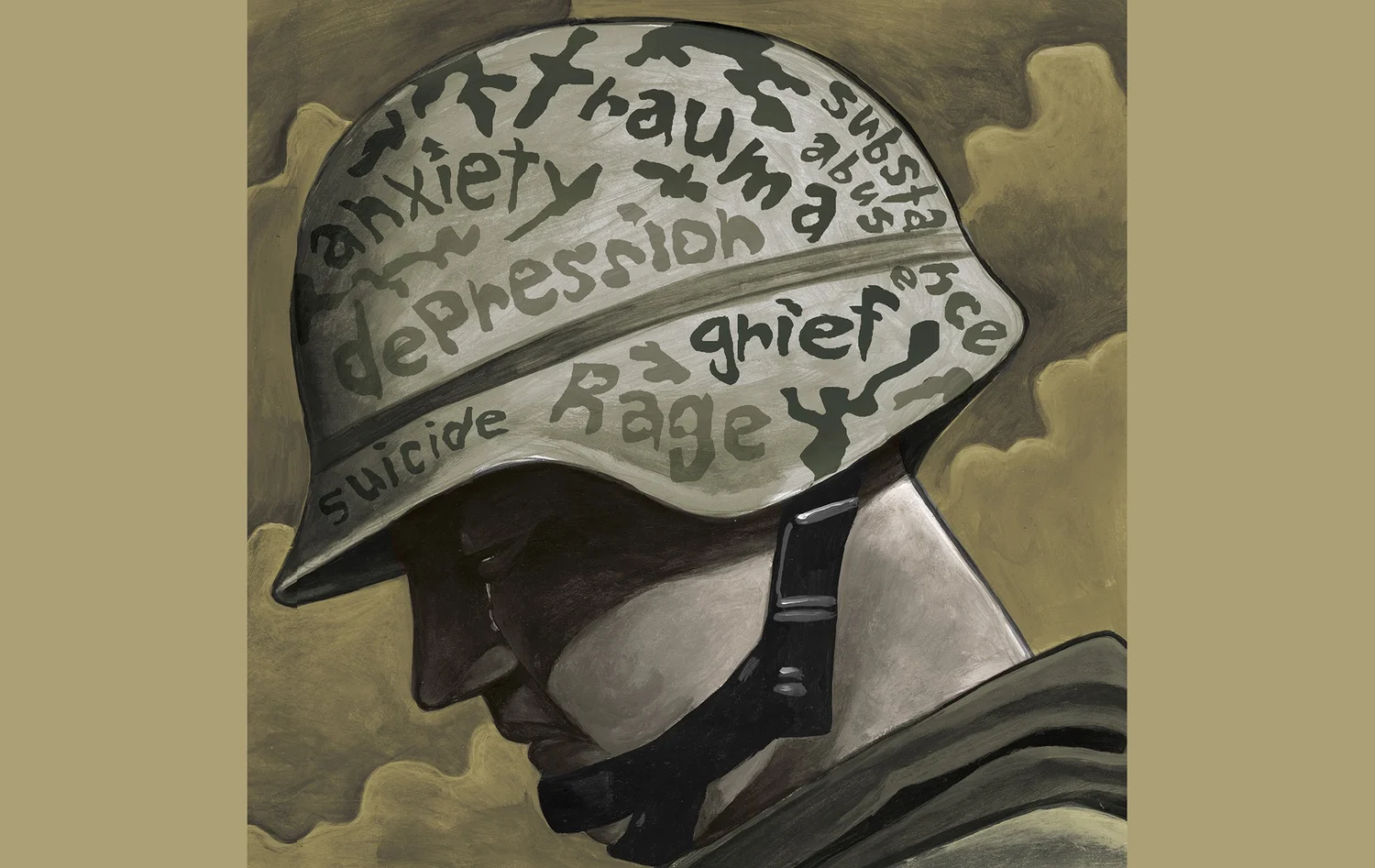PTSD Peer Support Group - Every Other Wednesday, 5-6 pm
Facilitated by a veteran and mentored by a Post member who's a Licensed Clinical Social Worker

Image via Paul Lachine/NewsArt.
Peer Support Groups
Peer support groups are a place where you can discuss day-to-day problems with other people who have been through trauma. Support groups have not been shown to reduce PTSD symptoms, but they can help you feel better in other ways. Because they can give you a sense of connection to other people, a peer support group could be a great addition to your treatment. Support groups can also help family members or friends who are caring for someone with PTSD.
Remember, if you are suffering from PTSD, is it important that you get treatment for PTSD as well. An evidence-based treatment provides the best chance of recovery from PTSD.
What are peer support groups like?
Peer support groups are led by someone like you who has been through a trauma. Groups often meet in Person, but many groups also provide online (Internet) support.
Sharing your story with others may help you feel more comfortable talking about your trauma. Or it may help to listen to other people talk about their experiences with a similar trauma. Peer support groups can help you cope with memories of the trauma or other parts of your life that you are having trouble dealing with as a result of the event. You may learn to deal with emotions such as anger, shame, guilt, and fear if you open up to others who understand.
When you connect with other people it can help you feel better. You can work together with others to get better at talking about your PTSD or learning how to ask for help when you need it. You might even share some of the materials from this website to help others.
BENEFITS of joining a peer support group?
1. Knowing that others are going through something similar
2. Learning tips on how to handle day-to-day challenges
3. Meeting new friends or connecting to others who understand you
4. Learning how to talk about things that bother you or how to ask for help
5. Learning to trust other people
6. Hearing about helpful new perspectives from others
Peer support groups can be an important part of dealing with PTSD, but they are not a substitute for effective treatment for PTSD. If you have problems after a trauma that last more than a short time, you should get professional help.
